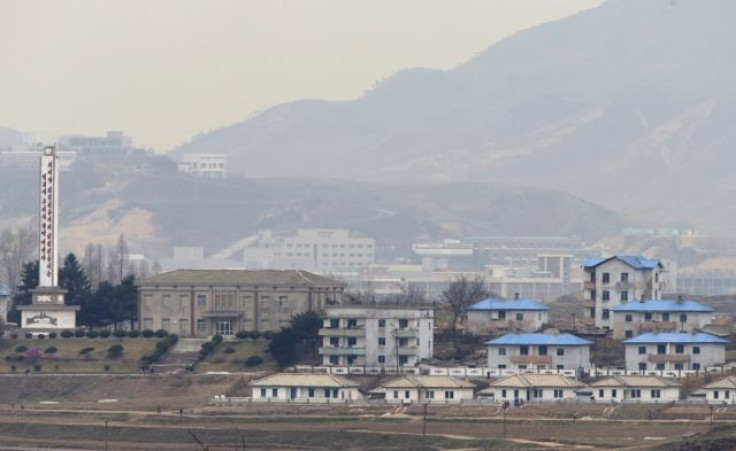South Korea Directs Remaining Workers To Pull Out Of Kaesong Industrial Complex After North Korea Snubs Call For Talks

South Korea issued a directive to its remaining workers to leave a jointly run industrial complex in North Korea on Friday, after Pyongyang rejected Seoul’s calls for talks on resuming operations.
On Thursday, South Korea’s Ministry of Unification gave the North 24 hours to agree to talks on the Kaesong Industrial Complex, and warned it could take serious measures if the North snubbed the invitation.
Operations of the industrial complex in the North's border town of Kaesong came to a halt on Apr. 9, when Pyongyang pulled out all of its 53,000 laborers working there.
“Pyongyang will be the first to take tough action if the South insists on worsening the situation at the border town,” Pyongyang's National Defense Commission said in a statement, Seoul’s Yonhap news agency reported. “The kind of ultimatum made by the South the day before will only lead to no good results.”
South Korea’s Unification Minister Ryoo Kihl-jae said the decision to ask the personnel to leave Kaesong was “unavoidable.”
“Because our nationals remaining in the Kaesong industrial zone are experiencing greater difficulties due to the North's unjust actions, the government has come to the unavoidable decision to bring back all remaining personnel in order to protect their safety,” Unification Minister Ryoo Kihl-jae said, as reported by the BBC.
“North Korea must guarantee the safe return of our personnel and fully protect the assets of the companies with investment in Kaesong,” he added.
He did not give a timescale for the withdrawal. A total of 175 South Korean workers are currently in the complex and are reportedly running out of essential supplies including food, due to Pyongyang’s refusal to allow fresh supplies from the South into the industrial complex.
It remains unclear how the South Korean government planned to implement its decision, because the 123 companies with factories at Kaesong, have said that they will remain at the complex and protect their investment, regardless of the government decision, AFP news agency reported.
Established in 2004, Kaesong reported a turnover of $469.5 million last year, and is a major source of hard currency for North Korea through taxes and revenues from its portion of workers' wages.
© Copyright IBTimes 2024. All rights reserved.












